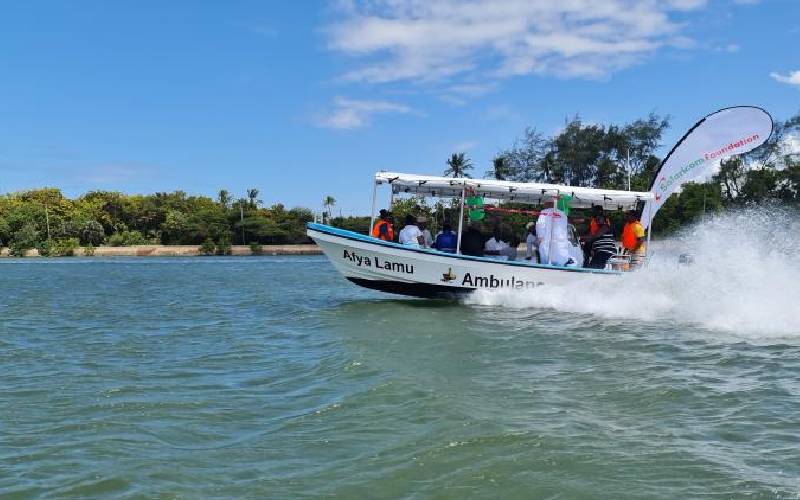×
The Standard e-Paper
Join Thousands Daily

For many people who live on Lamu Island, getting sick comes with a myriad questions: which hospital will I go to? How will I get there? Will I even survive the journey?
For expectant women or the critically ill, the line between death and survival is drawn on the choppy waters of the Indian Ocean.